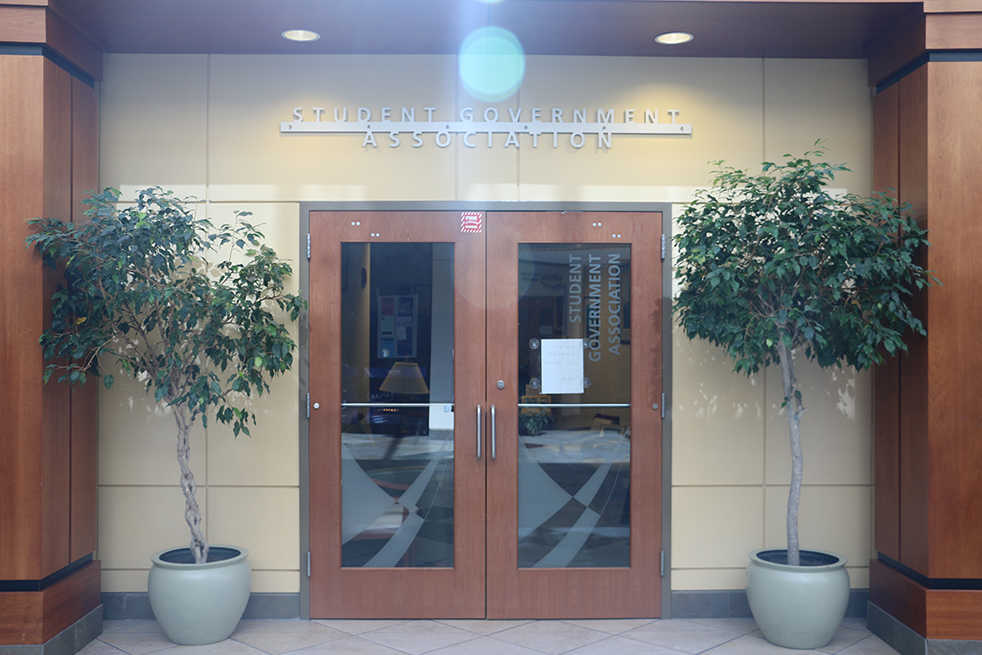When campaigning last spring, Shelby and Cox’s campaign platforms specifically focused on advocating for the needs and values of graduate students, as well as improving the typical student’s experience on campus.
“As graduate students of Georgia Tech, we have a vested interest in seeing our university succeed,” Cox wrote on his candidate ticket, “but we need to make sure that the university provides resources for our success as well.”
Shelby also emphasized the importance of working with organizations on and off campus in order to improve the graduate experience, further citing her connections within the School of History and Sociology and the Office of Graduate Studies, and her active participation on the Grad Life and Mental Health Joint Action Committees.
As for their goal to improve graduate living for underrepresented groups, organizations and programs, their leadership has already spearheaded action this summer with a recent joint resolution “reaffirming commitment to inclusion.”
At the Graduate Student Senate summer session on July 11, time was allocated to review the previous language that the Office of Diversity had in a first step urging organizations to commit to inclusion.
“The impetus behind it is that a few years back in the Strategic Plan, Tech had made a commitment to make a real effort to have a diverse and inclusive experience on campus,” Shelby explains, “and not all of the organizations on campus have echoed that commitment.”
The plan Shelby refers to was released in August 2010 as an initial design for the future of the university 25 years later. Some of the plan’s objectives included preparing students for global leadership, inspiring creative and entrepreneurial thinking, and preserving educational quality while increasing accessibility. So as the university’s administration pursues new ways to improve the school, Shelby and Cox are planning to coordinate with those efforts — specifically when collectivizing the student body and improving well-being on campus.
“It can be really stressful to be a grad student,” Shelby remarks, and there is a growing amount of literature that agrees with her. Numerous studies suggest that the graduate condition is one of anxiety, depression and isolation, but Shelby says she wants to change that.
“One of the reasons I ran for SGA is because I don’t think that [graduate life] has to be that way,” Shelby said. “Across the board, we want to work to make sure that we can make Tech a national exemplar by trying to break the mold a bit.”
And plans are already in place for the start of the new year. Traditionally, the fall semester kicks off with the Graduate Student Picnic where members of the community can mingle with one another. However, this year will be the start of a new tradition where a Graduate Convocation will occur alongside the picnic in a new “Graduate Student Welcome.” Similar to New Student Convocation, the Graduate convocation will take place at McCamish Pavilion and feature speakers from both the student body and administration.
“One of the things that Andrew and I committed to is making sure that graduates feel welcome on campus and that graduate school doesn’t feel like a job,” Shelby explained. “We’re here for a long time and we want it to feel like a positive community.”
In addition to increasing the quality of the community, Shelby expressed a desire to connect graduate students more to the rest of campus. “One problem, I think, is how graduate school itself is structured,” she said, going on to describe how everything revolves around work, whether it is at a desk or in a lab. “The structure isn’t there to reward [students] for having a community, being involved and serving [their] community.”
As such, Shelby and Cox have placed an emphasis on increasing the exposure for graduate students, exploring the best ways to increase involvement and participation from a community that makes up almost half of the student population on campus. And based on Shelby’s comments, they are of the mindset of creating the opportunities for an inclusive campus, then letting graduate students fill the space that they create.
Shelby also stressed an intent for more policy advocacy from Graduate SGA. Even before their inauguration, her running mate had coordinated with Tech’s Government Relations office to promote the removal of a stipulation in last year’s tax bill that would have taxed graduate tuition waivers. The Tax Cuts and Jobs Bill of 2017 that he and other members of the graduate community opposed specifically would have repealed tax deductions on qualified tuition by considering those waivers to technically be income. But, Tech and the rest of the nationwide opposition from the student community was enough to convince the U.S. Senate to scrap the provision.
Furthermore, In order to coordinate more easily with leadership at higher levels of government, the two created the new position of Vice President for Government Affairs, which PhD student Emeka Obikwelu has filled.
“If measures like [the tax bill] were to continue to happen, we want Tech graduate students to be more aware of what policy impacts there are at the state or national level,” Shelby said when describing the role of the new role.
Graduate school is not easy. Though according to students like Renee Shelby, just because academics are not easy, it does not mean that they should be harder than they need to be, and hopefully in the near future, Tech can become the type of environment Shelby and Cox promote.
